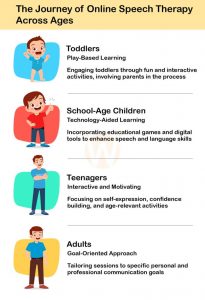What is Professionalism and Campus Behavior? How is it inculcated?
By Prapoorna M
Last Updated: November 27, 2021
The uncertainty about being aware of the professionalism and adopting a professional behavior exists in students who would be leaving their campus in a few years and would embrace the real professional environment soon. Along with the students, the amateur employees who are into the work environment recently should also read to know the below points to understand what helps them to be an impeccable employee at work. Let us throw some light on unspoken etiquettes that a professional really needs to know.
Can Professionalism be developed?
Professionalism can be developed from an early stage. Institutes and schools try to inculcate it from the beginning. Professionalism should be developed even before venturing into work life. Best place to develop is the classroom. Practicum helps students to practice whatever they have learnt in theory. Management institutes are ideal for developing a professional approach. Management institutes expect seriousness from all students

Professional Behavior
Professional behavior is a form of etiquette in the workplace that basically refers to respectful and courteous conduct. Many organizations will have a formal code of professional conduct. Professionalism involves being conscious of how employees treat co-workers and clients, and ensure a positive workplace attitude. In general, professional behavior comes down to ethics and dedication.
Qualities of Professional Behavior
The qualities that one should possess regarding the professional behavior are personal qualities. In order to embrace professionalism, one should possess some personal qualities, cultivating which you may easily put yourself into the shoes of a professional of your niche.
Dress
- Clean, appropriate clothing and following dress code if any
- Avoiding clothing that is revealing or proactive or includes offensive language or pictures.
Honesty
- Always acting openly
- Never sharing confidential, privileged or client information unnecessarily
- Not tolerating or justifying dishonest conduct by others
- Reporting any conflicts of interest immediately
Integrity
- Acting ethically and doing the ‘right’ thing at all times.
- Always reporting suspicious people in the office, misconduct, or other violations of company policy
- Remaining impartial with no personal bias and intolerances
Commitment
- Dedication and a positive action to the role
- Dedication from employees is often contagious with others being inspired to go the extra effort themselves
Work-related Behavior
It is essential to emphasize on the work-related behavior that an individual should possess. The below points would give an idea on how an employee’s work behavior would make him/her an exemplary.

Time Management
- Not being late to work, sticking to lunch and break schedules
- Reviewing schedule at the start of the day
Meetings
- Arriving on time and being prepared with notes
- Making contributions to discussions where appropriate
- Not taking over when someone else is trying to talk
- Respecting the meeting convener or chair
- Following the appropriate format, and asking considerate questions
Teamwork
- Working with people one does not like
- Setting aside differences to work well with others
Accountability
- Taking responsibility for work and actions
- Doing what needs to be done, and not leaving it for others
- Being honest if things go wrong
- Working out an effective resolution to move forward
- Seeking help when needed
Interpersonal relations
One needs to maintain good interpersonal relationships in work environment in order to gain respect and have recognition. These also come under the behavior an employee is expected to have.
Respect
- Maintaining a respectful attitude to others at all times
- Not lashing out at colleagues or disrespecting anyone
- Always using appropriate language and not swearing
- Apologizing for errors or misunderstandings
Communication
- Speaking clearly and in language that others can easily understand
- Acting courteously and using good manners when engaging with others
- Following company guidelines regarding content
- Reading Information provided before asking questions
- Listening to others when they are talking or explaining
- Not engaging in office gossip and being mindful of language
Organizational Behavior
The key points to be kept in mind relating to the organizational behavior are
Safety
- Understanding the company safety policy
- Reporting any maintenance or other hazards immediately
- Corporate Goals
- Understanding company’s mission, goals, objectives and own role
- Fundamental qualities of professionalism
There are some fundamental qualities like the ones stated, that make a person to practice professionalism from the stage of being a student at school. Such qualities are inculcated in students with thorough practice, to help them to be real professionals at work. Having these qualities as a part of their behavior helps them to get adapted to the professional environment with ease.
Reliability, responsibility and respect for others
- Students should be capable of shouldering major work responsibilities
- Should be highly responsible for managing and accomplishing all tasks
- Students should respect their coworkers regardless of likes and dislikes
Discipline
- Realizing that you are no longer in high school
- Cannot afford to have a careless attitude towards your career
- Ought to take their course curriculum and your career seriously
- Must maintain discipline to do well in the career
Integrity
- Having integrity is important in this rapidly changing world
- Organizations want employees with integrity and strength of character
- Employees have to adhere to the ethical standards of the company
- Management students must learn the importance of being honest to themselves and others
Professional behavior guidelines

The below are the guidelines for a professional behavior.
- Require that all students conduct themselves in a manner that reflects three core sets of integrated values of professional behavior
- Respect and courtesy, Honesty and candor and care, competence and confidentiality
- These three core sets should form the basis for the student’s interaction with all other students, all college staff and others
- The guidelines apply to all interactions – face to face, phone, SMS, email, or any other medium such as Facebook, Twitter, or others
- Apply in all contexts such as classes and events on campus as well as activities and events held elsewhere
- The guidelines are applicable in relation to students undertaking placements and other learning activities off-campus
Core value 1: Respect and Courtesy
Students will engage with people from diverse backgrounds, staff and other people or when engaging in learning activities and events off-campus
Respectful behavior involves
- Treating every individual with respect in all communications, in any discussion about a person or group of people
- Not engaging in disrespectful, unreasonable, offensive or aggressive behavior
- Not engaging in bullying, harassing or discriminatory behavior towards a person or a group of people
Respect and Courtesy in Classrooms
- Teachers differ in background and have different teaching styles and practices, only some of which may be well-suited to each student’s particular learning preferences and experiences
- Diversity in teaching approach contributes to a valuable learning environment for all students
- Students should understand and respect each teacher’s academic judgment of how best to meet the learning objectives of the subject
- Teacher’s decisions are made with the objective of achieving the best learning outcomes for all students, in light of available resources and pedagogical aims
Attending Class
- If students are unable to attend a class or part of a day of an intensive class, they should not expect teachers to re-teach the material that has been covered in the missed class
- It is up to students to catch up by working through prescribed readings and talking with other students about the issues and questions discussed in class
- Consultations with teachers may be scheduled where a student has particular questions they cannot answer from their own efforts
Power Point Presentations
- Teachers adopt different styles and practices to provide a range of approaches to learning law, including in relation to the use of Power point and lecture notes
- Some teachers use power point in classes and others do not
- Students should respect the choices made by their teacher regarding teaching method
- Using personal devices for recording classes
- Laptops and Phones in class
- Students can expect to be told what use of personal computers is appropriate for classes in a particular subject
- Laptops should be used only for tasks being undertaken at that time in class
- For example, email, Facebook, Twitter and instant messaging programs should not be used during class
- All mobile phones and personal communication devices should be switched off or put on silent while in class
Consultations and communications with teachers outside the class
- Students should appreciate that their teachers are not only teachers – they have other commitments
- Students should raise their questions and queries during class.
- Teachers will tell when they can be contacted
- Respect each teacher’s preference in relation to these matters
Face-to-face consultations
- After class consultations
- Arrange for a mutually convenient time to meet teachers
- Time to meet other officials of the college
- Some teachers will respond to student queries via email
- Do not expect answers to complex questions via email
- Students should not expect to be taught though email
- Teachers will respond to an email within reasonable amount of time
- Do not expect teachers to respond during weekends or vacations
Phone
- Teachers generally respond to phone call within a specified time
- Teachers should not expect to be given any teacher’s home or mobile phone numbers
Guidelines on assessment tasks
- Teachers discuss during the class time assessment task that must be under taken and what is expected when completing those tasks
- They decide who undertakes the task and the kind of support needed
- They should respect those decisions
- Teachers are busy towards deadlines and examinations
Feedback on assessment tasks
- Feedback may be a grade or a discussion of performance
- Students should be aware of the college policy for feedback or failure
Core Value 2: Honesty and Candor
All interactions between students and others should be honest and open as well as respectful and courteous
- Honesty and candor are key qualities to be nurtured and displayed
- They include trustworthiness, truthfulness, fair dealing and sincerity
- Students should acknowledge mistakes when they are aware of them
Core Value 3: Confidentiality and Confidence
Students should be mindful to the limits of their expertise and knowledge as a student
- Should ensure that their work product is competent and within the scope of their skills and responsibility
- Students may come across confidential information relating to other students or staff at the college
- Students must not reveal information about other people that is confidential or otherwise sensitive information without authority
Students demonstrating professional behavior
- All students are expected to display professional behavior by following the below etiquettes at school and college.
- Show respect to colleagues, academic and professional staff
- Respect any cultural, political and personal differences, both face-to-face and in all forms of communication
- Be punctual, participate in classes and comply with the ground rules set out by the teacher like mobile phones in class
- Read all relevant college notices, newsletters, emails etc.
- Monitor announcements and updates of coursework through all appropriate channels
- Develop familiarity with the course rules and policies on the college website
- Takes responsibility for ensuring that enrolment and other responsibilities are attended to in a timely way
- Is punctual and dresses appropriately for internships, clinics and experiential subjects, including international opportunities
- Demonstrates flexibility, courtesy and good humour in dealing with additional requirements and program changes that are sometimes necessary in experiences involving visits to workplaces and institutions outside the college
So, these are all the ways of displaying and inculcating professional behavior in an amateur. Having understood that studying in a school or college also inculcates professionalism in a student, parents should encourage such an attitude in their children. Are you having any issues with the behaviour of your child or lack of concentration in children? Are you a professional trying to adjust to the new work environment or facing stress or depression due to the office politics? Don’t worry. We are here to help you. Book an appointment with our expert psychologists to get all your emotional problems solved to the core. Live free.
Book your Free Consultation Today
Parent/Caregiver Info:
Client’s Details:
* Error Message









